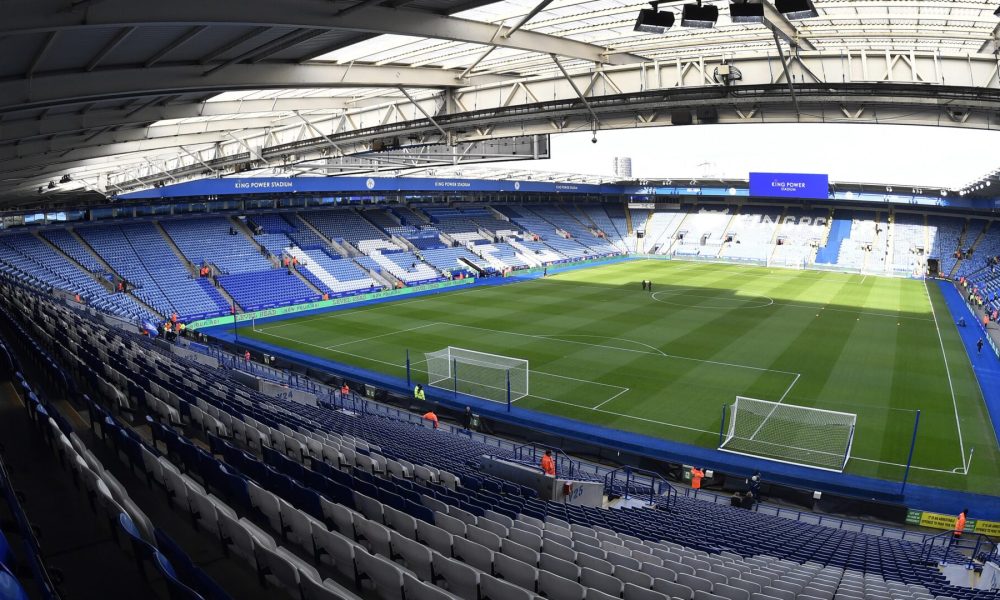Leicester City
BREAKING ;Leicester’s financial Case Was doomed

The accounting for Leicester are public and not pretty. Not only do these £90m losses for the second season running indicate poor choices, but they also raise doubts about whether this was ever a feasible concept.
The most obvious thing that jumps out to you when you read Leicester’s latest financial results is that there’s no easy fix. This is going to take a while to sort out. There’s going to be lawyers and fire sales and points deductions on the way for at least the next couple of years.
The second thing that jumps out, though, is the line the club’s crisis communications are taking to explain it. The argument from the club is that there were a series of unforeseen costs that caused those losses to spiral, namely not being in Europe, a considerable drop in prize money as we went from 8th to 18th, and the cost of sacking the manager.
This is one of those things that ends up being repeated in every article, as it’s the closest we have to an official statement on the issue. But we should be treating this argument with utter contempt. The idea that a team made a near-£100m loss because we weren’t in Europe, sacked our manager, and finished lower than the season before is not an explanation so much as a charge sheet.
Both this year and last year the club’s accounts contain the line that “qualification for European competitions has a highly material impact on turnover and cash flows for the season in question”. That is a highly dangerous position for Leicester to be in, not an excuse for why you made a massive loss.
It’s one thing to aim to compete with the top six through a model of signing young players, developing them, then selling them on and using that to fund your operations, it’s quite another to have a plan where you do that but also if Leicester City (total number of European campaigns in our 140 year history: 6) don’t get into Europe the financial floor falls out.
That is not a reasonable strategy for success. It’s a leveraged gamble that requires unsustainable performance to maintain. It might have lasted a few more seasons with a bit more luck, but eventually the bill was going to come due.
A numbers game
The previous year’s accounts, of course, included a year of European football without any significant sales and posted a similar loss of around £90m. Regardless of on-pitch performance last season, we weren’t going to have any European football in this year’s accounts, and given the lack of spending they were unlikely to match the previous season’s finishing position either.
With that in mind, it’s difficult to imagine any scenario where Leicester could have avoided posting serious losses over the next few years. The plan seems to have required simultaneously getting into Europe every season AND selling at least one high-value asset every summer, a dual strategy that, it is fair to say, would be quite difficult to pull off and even then may not have been enough to keep us out of the red.
If that’s the plan, then do you actually have a plan at all? Are you just recklessly gambling, raising the stakes again and again in the desperate hope that you hit the Champions League jackpot, with no failsafe in place if you don’t?
Was the only way to ultimately rebalance the books to keep turning a huge profit on player sales and then go on deep European runs? And upgrade the stadium to sell 40,000 tickets every week. And overhaul the commercial operation so that we have more noodle partners than Manchester United?
That’s a vague, long term strategy, perhaps, albeit one based on an extremely optimistic view of your own abilities, but it’s not one that understands the limitations that football clubs operate in. They are not like normal businesses. You are constrained by history and geography, and at the mercy of weirdness and luck, as well as the fact there are a limited number of seats at the top table.
The goal of a football club is to be competitive and successful, of course, but you have got to understand the very real possibility that things are going to go wrong. There are endless examples of teams suddenly tripping over themselves and plummeting down the league. Given the fact six teams basically can’t be relegated, a fifth of the rest are going to go down. To be so blindsided by that happening to you – a club that had been relegated in a quarter of its Premier League seasons before the last campaign – is inexcusable.
You can see how this mentality set in, the way that almost breaking into the top four a couple of times made it seem like the magic money tree was tantalisingly within reach. That Leicester had cracked it, that the plan was working, that we were on our way to the big chairs. We could keep snapping up your Maddisons and your Fofanas then selling them on, without affecting performance on the pitch.
But the truth is that all the best financial crashes happen this way. You come up with a clever plan, and then that plan ‘works’ for just long enough to convince you that you’re infallible. Whether that’s selling a bunch of bad mortgages by pretending they’re good mortgages, convincing everyone to put their money into a special box you made, or tricking big dumb elephants to give you £80 million for Harry Maguire.
The institutions that survive these crashes are the ones who stay clear-headed while everyone else is shooting it up in Vegas. Who don’t leverage themselves up to the eyeballs on private jets and Belgian midfielders. Who put systems in place to mitigate the threat from random events, or bad luck, or a run of mistakes, so that the odd failure doesn’t equal existential risk.
This is basically the reason teams like Brighton and Brentford (and Crystal Palace, to some extent and in a slightly different way) are open about their sustainability model. They operate within a set of limits, with ambitious goals but fairly limited risk because they are always willing to take difficult decisions with the long term health of the club in mind.
If Brighton get relegated next season, they will make far less money and lose a lot of players, and they may get stuck in the Championship, but they won’t be staring at a £100m hole and a sequence of points deductions while half their assets walk out the door for free. They also don’t need to finish in Europe to keep themselves going.
Leicester, on the other hand, seem to have completely misunderstood their own position and failed to protect themselves against even the most obvious potential problems. We leveraged ourselves to chase the dream, committing eye-wateringly unsustainable money on the wage bill, but then we needed European football and top six finishes like an addict does. When they got taken away, just for one little season, the withdrawal hit hard and there was no safety net.
It is true that the club would have been criticised in some quarters for selling players in the aftermath of the FA Cup win and the top four challenges, possibly even by its own manager. This might have been seen as a “lack of ambition”, the cardinal sin. But being a good leader is about identifying potential problems before they happen and making difficult decisions to that end.
That’s what the money’s for, but it’s also why you create a strategy in the first place, so that the decisions to some extent make themselves. It would have been simple to explain to the fans why they had sold Youri Tielemans, all they had to do was point to Maguire, Ben Chilwell, and Riyad Mahrez as successful examples of that strategy working in the past. Lots of people would have accepted that approach. Indeed, we all suspect that ultimately that is what would have happened had Vichai still been in charge.
Instead, they chose to assume that they were smart enough to keep winning, that they could push everything they owned in on winning again, because they had won in the past. The numbers always go up, new contracts for everyone, Soumare to the moon!
No money, mo problems
This is obviously not only a Leicester problem. Look around the Premier League, particularly in the direction of other clubs in the Midlands, and it’s clear who the next candidates to hit the wall are going to be. They may well experience success before then, but they are mortgaging their future just as much as Leicester have done.
There are fair criticisms of the financial regulations to be made, and the entire system that requires clubs to have such extreme funding to compete at the top level. But to me the greater problem – and the reason for having sustainability rules in the first place – is that so many English football clubs have been overtaken by greed and put themselves entirely at the mercy of the owners’ money.
If you devise a business strategy that ensures that your club cannot function without the billionaire owner, then you are opening up Pandora’s Box of potential dangers to the club’s future.
Most owners don’t live in the UK, they are often themselves at the mercy of the favour of the regime in their own countries, and the clubs are usually just one of many different business assets. You have no control whatsoever over what they do, or – just as importantly – what happens to them.
Leicester have come out this week with the same old lines about the club’s future being secure because King Power have committed to it. I have no reason to doubt this is true, for now, but we as much as any other club have seen that you’re only one heartbeat away from the next guy, and who ultimately knows what the mentality and motivations of the King Power leadership actually are.
What happens if the money dried up? Twice in very recent memory the actions of foreign governments have had a dramatic effect on the footballing landscape, whether through the Chinese crackdown on corruption or Russia’s invasion of Ukraine that prompted sanctions and the ultimate removal of Roman Abramovich from Chelsea. There are numerous examples of owners not being who they said they were, not having the money they said they did, or being suddenly embroiled in legal issues that impact the businesses they own.
That’s why football clubs have to be run in a way that safeguards their future first and foremost. We can’t be putting together business plans based on delusional ideas of what we can achieve and racking up hundreds of millions in losses, able to continue functioning only on the promises of backing from the owner. The people at the top have a responsibility to ensure that the club will still be around for the next 20, 30, 50, or 100 years above all else.
A club that is losing £100m a year and which has no prospect of recouping those losses without taking even more huge gambles has obviously not been run in that way. This week’s accounts are a damning indictment of the entire structure and strategy of the club.
Maybe the only way to solve this is for a government regulator with teeth. One that ensures that there are fans on the board with power to safeguard the long term interests of the community above the short term financial or political interests of the owner and directors.












